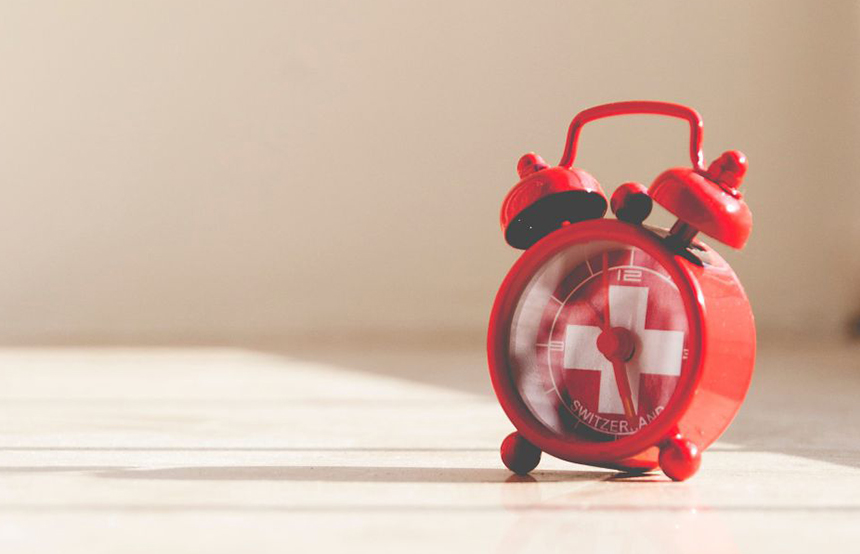Do You Need 8 Hours of Sleep?
Photo by Katarzyna Kos on Unsplash
National Sleep Awareness Week (March 4 – 10) marks a time when consideration is given to how much sleep we need. For decades, the old adage was that eight hours of sleep per day would leave one feeling rested and revitalized. However, is this really true? Is eight hours of sleep the magic number, where everyone will feel great and never be tired? Sleep is a fundamental gauge to our overall well-being. Throughout our lives, sleep health will remain a vital question with every individual having to determine just how much sleep is needed to live a healthy lifestyle.
Most people know that a good night’s sleep is important, but few adults actually practice going to bed at a decent time and getting our eight hours of sleep. For those that are sleep deprived, a feeling of truly being rested can be easily forgotten. On top of not practicing good sleep habits, we have caffeine injected drinks like coffee, soda, and energy drinks, plus external lights like those found within electronic devices such as smartphones that mess with our natural sleep and wake cycle.
The amount of sleep needed for an individual will vary based on age as well as lifestyle and health. To determine how much sleep you need individually, you will need to learn where you fall on the sleep needs spectrum as well as what factors of your life are attributing to the quality of sleep you experience as well as quantity. Such factors can include stress and work.
How Much Sleep Do You Really Need?
The National Sleep Foundation is an expert resource when it comes to how much sleep is needed to feel comfortable. Research has shown that while the results of sleep studies cannot dictate the exact amount of sleep needed for people of varying ages, there are recommended windows for sleep needs. Based on the individual, it is important to ask yourself the following questions:
1. With seven hours of sleep are you happy, healthy and productive in everyday life? Do you need more sleep to feel ready for a busy day?
2. Do you have health issues such as being at risk for disease or are you overweight?
3. Do you have problems during sleep?
4. Do you need caffeine to get through each day?
5. Do you find yourself becoming sleepy while you drive?
After a recent study, the National Sleep Foundation was able to create a new range of appropriate sleep durations for specific age groups. These sleep duration ranges are a guide to go by but are not set in stone. A new category was created for ages 18 to 25, known as the Younger Adults category. The sleep range within this category is 7 to 9 hours. For adults ages 26 to 64, the sleep range did not change after the new study and remains at 7 to 9 hours. For older adults, ages 65 and older, the sleep range is 7 to 8 hours.
How to Improve Sleep
Now that you know the recommended ranges of sleep, changes can be made to improve your sleeping habits. Improving your sleep habits and making sleep a priority can lead to a healthier lifestyle and overall better quality of life. To begin, you will need to assess your individual needs as well as daily habits. You will need to see how you respond to different sleep amounts.
As you sleep for various durations, pay attention to your mood as well as health and energy. When you have a good night’s sleep, how do you feel the next day? Ask yourself the same question after a rough night of sleep. It is important to note that a good diet plus exercise can assist in quality sleep.
Healthy sleeping tips can help you get on track for a better night’s sleep. To start, try to stick to a sleep schedule, even during the weekends. It can be easy to sleep in or stay up late during the weekend but doing so will interrupt a sleep schedule which can lead to issues. Practice going to bed with a relaxing ritual. This can be reading, taking a hot bath, etc.
Be sure to evaluate your bedroom and create a space that is relaxing. Take into account lighting, sound, and temperature. Your mattress and pillows should also be comfortable. Ease up on beverages that can harm sleep such as caffeine and alcohol. Electronics should be turned off well before bed to help your mind get into sleep mode.
Overall, it is important to find the right sleep duration number for your individual needs. Practice good sleep habits and you will find success with your sleep, feeling rested and revived each morning.
To learn more about our urgent care centers, call 888-MDNow-911 or visit www.MDNow.com.
MD Now® Urgent Care Walk-In Medical Centers is the leading provider of fast and affordable urgent care to adults and children in Palm Beach, Broward, and Miami-Dade counties. Our state-of-the-art, walk-in medical centers are open seven days a week to deliver an affordable and convenient alternative to long emergency room wait times and the limited hours of family physicians. No appointment is necessary and major insurance plans are accepted. In addition to providing a comprehensive range of urgent care services to treat a variety of illnesses and injuries, our multiple locations offer digital x-rays, EKG, lab testing, physicals, immunizations, vaccines, occupational medicine, travel medicine and selected primary care services. Find the medical care you need with the convenience you want at MD Now. Call: 888-MDNow-911, online: www.MDNow.com.

